What is broad, yellow, and brings hope to the farthest reaches of Ukraine? Zeilen van Vrijheid’s ambulances. The small Dutch non-profit organization was only founded following Russia’s full-scale invasion of Ukraine in February, but has already managed to bring over 70 ambulances, a neo-natal vehicle and a fire truck to various Ukrainian cities close to combat areas.
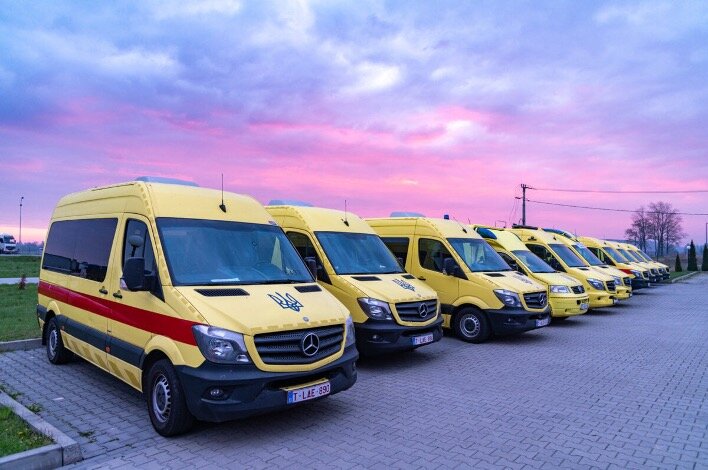
Ambulances from Convoy 5. Photo credit: Zeilen Van Vrijheid
The foundation’s story reveals the power of migrant networks and how people from different, officially enemy nations, can work together to save lives. To me, it has been an unstoppable source of hope in the dark months of the Russian invasion.
After completing her day job as a technical solutions architect in a big insurance company, Veronika Mutsei looks for second-hand ambulances in the Netherlands and other EU countries. As Zeilen’s co-founder and chairwoman, Mutsei is responsible for many different tasks, from coordinating purchases to finding and maintaining partnerships. A Ukrainian from Kyiv, Mutsei likely has not had a proper night’s sleep since Feb. 24. In an interview for DutchNews, she told me “When one convoy departs, we start preparing the next. The war will not pause just because we need the weekend off!”
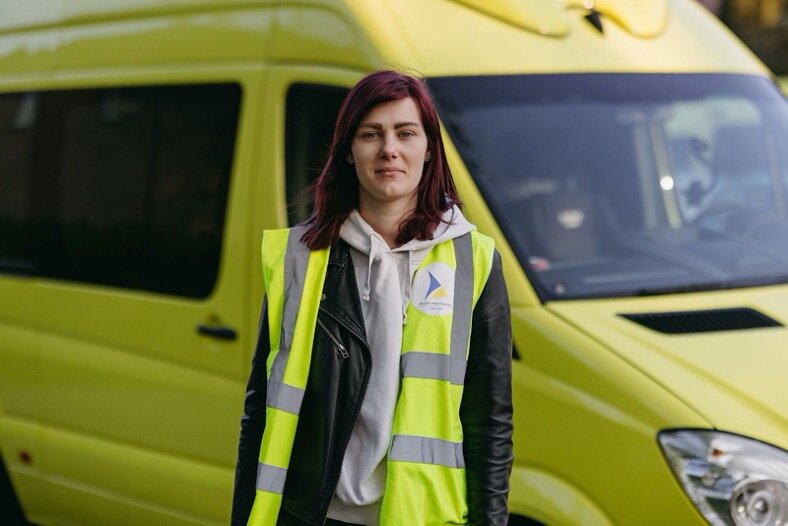
Mutsei at one of the convoy departures. Photo credit: Alina Krasieva
The feeling of urgency helps to mask the suffocating anxiety over the future of Ukraine. All of Zeilen’s coordinators are Eastern European expats, having left their home countries some years ago. Yet, since the invasion, they have transformed their private and often professional lives to support Ukraine full time. They shuffle bringing up children, day jobs, and an enormous number of tasks required to buy an ambulance, fill it with supplies, assign transit plates and find volunteer drivers. Even though it often means sacrificing sleep, social connections, or putting their jobs at risk, this is little compared to what so many people in Ukraine are going through now.
In times of relative peace, expats find themselves missing their relatives and friends back home. In times of a full-scale war, those feelings can morph into a sort of pre-panic attack state, contained only by the will to keep doing something. Mutsei’s best friend, Aleksey Maslo, stayed in his hometown of Kharkiv after the war broke out. Zeilen has been supporting his grassroots organisation, Kharkiv Help, with evacuation cars and humanitarian aid. One of the vehicles that Zeilen donated to Kharkiv Help evacuated over 170 people with limited mobility from the city’s bombing hotspots.
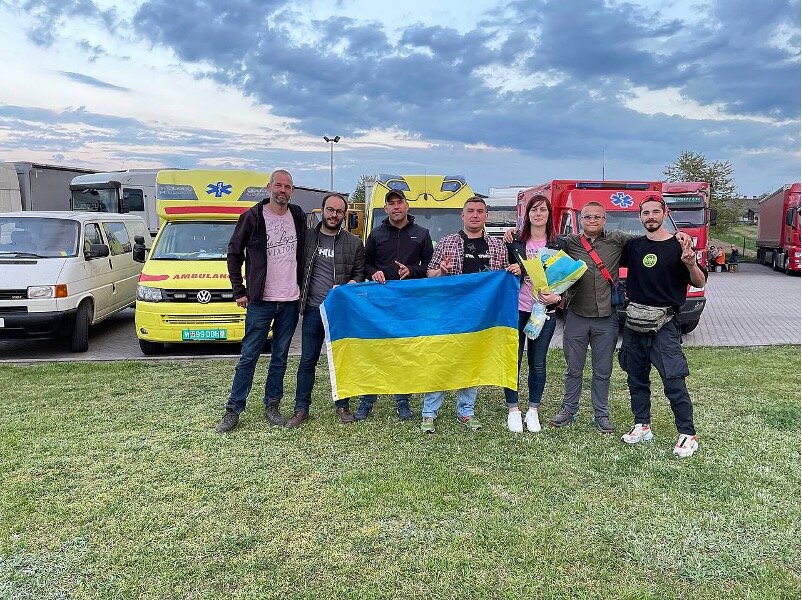
Zeilen meets Kharkiv Help. Photo credits: Zeilen Van Vrijheid
The migrant condition of having one foot here, one foot there, helped Zeilen to quickly understand what is most needed to help Ukraine. Medical coordinator Maria Pedenko, now a healthcare consultant in Amsterdam, used to work in the Ukrainian Ministry of Health. Her connections with hospitals in various Ukrainian cities resulted in Zeilen receiving specific requests for medical supplies. “The list is actually very short,” smiles Zmicier Zaleznicenka, Zeilen’s media coordinator, in an informal chat. “Hospitals need just one thing – everything!”
And Zeilen delivers, to their best abilities. Acquiring 70 ambulances in little over two months is a number that few established humanitarian organisations can claim. Zeilen keeps its overhead costs to a minimum, running entirely on volunteers so they can put all their resources into helping. “The most important thing for us is to be productive and efficient,” proclaims Mutsei.
Since March, Zeilen’s connections with healthcare institutions deepened to the extent that Ukraine’s Ministry of Health requested a neonatal ambulance directly from the foundation. The ambulance reached Odesa Paediatric Hospital in the second week of May.
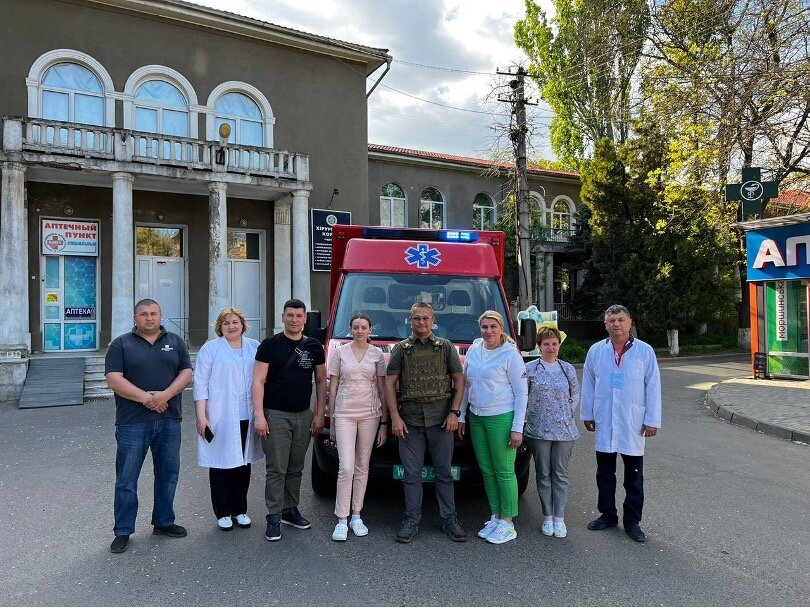
Zeilen’s “babylance” reaches Odesa. Photo credits: Zeilen Van Vrijheid
The foundation’s co-founder, Daniil Simanov, was born in Russia, although he denounced his passport after the invasion of Crimea. In his time living in the Netherlands, he has established a network of Russian-speaking expats from all over Eastern Europe that fuelled the foundation’s early activities. Before Zeilen was officially registered or had a bank account, Simanov collected almost 20,000 euros informally, in cash, to buy the first ambulances and humanitarian supplies. “We want to show people that there is a different Russia and different Russian people,” he told me in an interview for DutchNews.
A Ukrainian and a Russian coming together to support Ukraine sounds like a conciliatory fairy-tale but, in reality, Mutsei has struggled emotionally with the cooperation. In an interview for the BBC, she admitted to strong feelings of hatred against the Russians after the invasion, especially as her relatives, including her younger sister, remained in war hotspots. She recalled wanting to channel those negative feelings and excess anxiety into action.
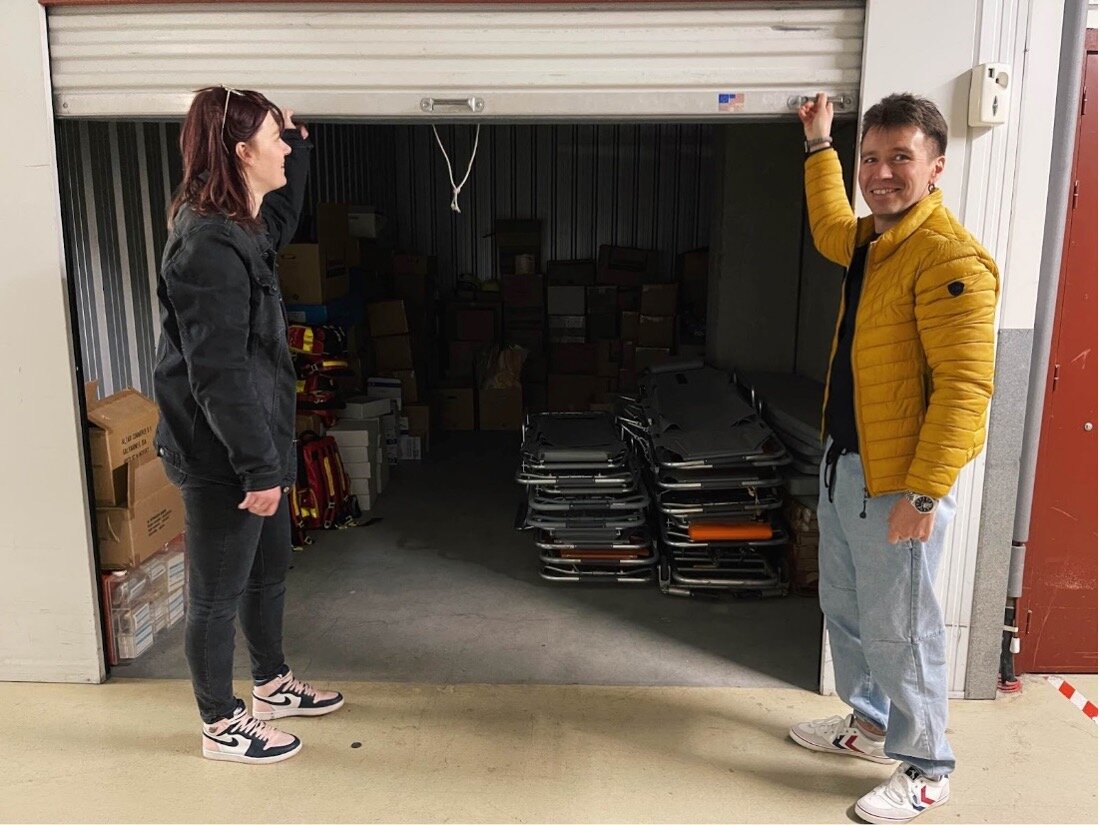
Mutsei and Simanov in Zeilen’s warehouse. Photo credit: BBC
For many, getting involved in helping people is the only way to deal with the overwhelming trauma of the war. Volunteers of various nationalities mentioned that working with Zeilen helps them to find a purpose after their world has collapsed into a new, unknown, and hostile state. Being active surely cannot heal their trauma but it helps to ease the pain.
In the darkest of times, many people show their best. Zeilen has energised a lot of goodwill. Corporate sponsors flock in to buy ambulances, and friendly organisations from all over Europe and beyond chime in. For example, one of Zeilen’s key partners, the ASBIS enterprise, funded the purchase of 10 ambulances only to come back and buy 10 more. Collaborators bring hope for a better future, like schoolchildren from The Hague that gathered over 5,000 euros in a school fundraising contest.
Thanks to collaborative efforts, Zeilen is able to undertake extremely important work. In the third week of May, the foundation coordinated bringing six heavily wounded soldiers to a German hospital for surgery and rehabilitation. It was one of the very few successful attempts to bring evacuated Ukrainian military personnel under the EU’s medical care.
I’ve been following Zeilen’s activities almost from the start, not only for journalistic purposes. As an Eastern European migrant in the Netherlands, my world also collapsed on Feb. 24. My hometown, Lublin, is as close to Lviv as it is to Warsaw. For all the notions of journalistic objectivity, I am human, and worried.. Seeing so many people from different backgrounds work relentlessly together to bring aid helps me to cope. It brings hope that decency and kindness can, and will, triumph over mindless cruelty and megalomanic imperialism.
So keep driving, Zeilen. First to victory, then to Ukraine’s reconstruction.
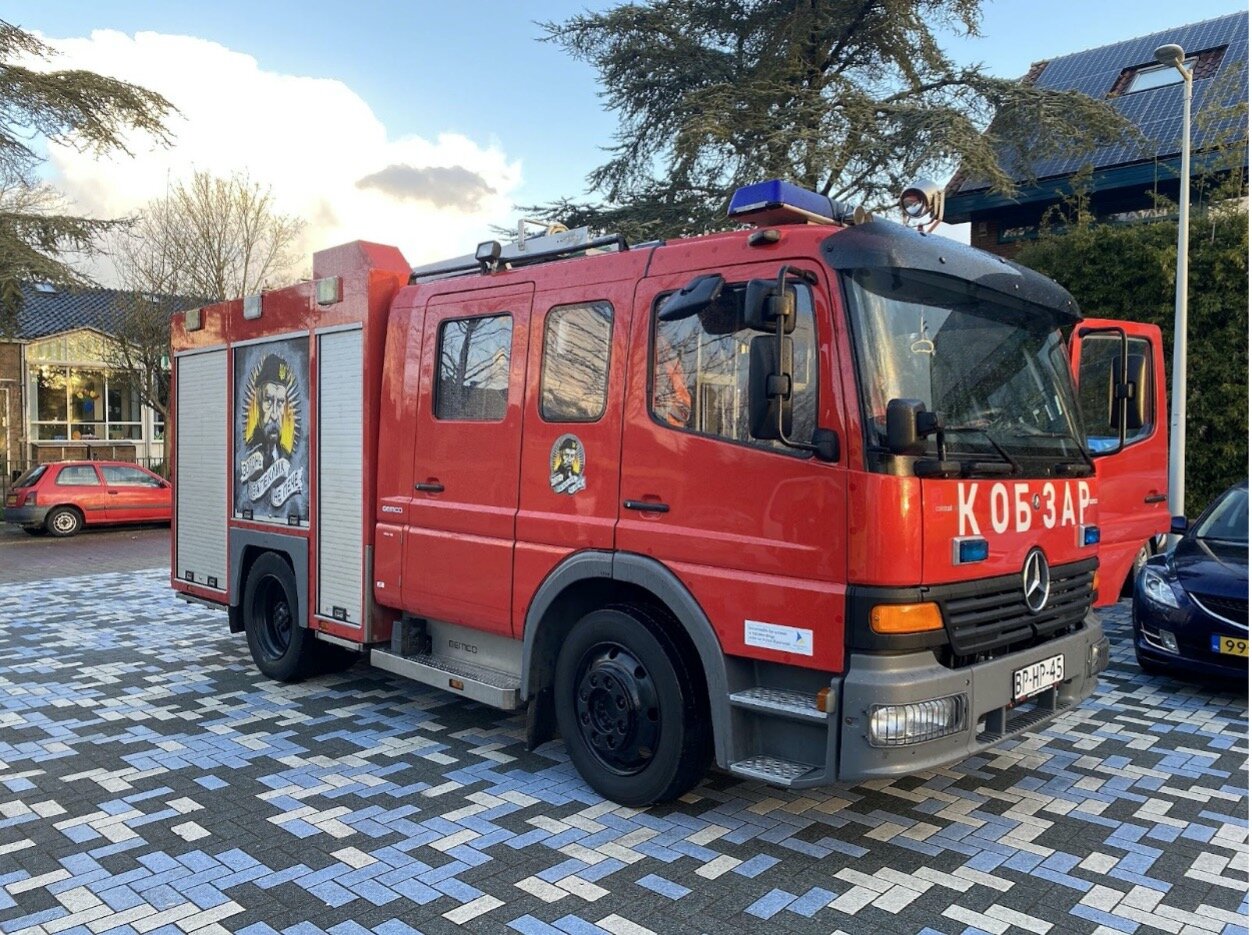
Zeilen’s firetruck, named Kobzar, is now in the Luhansk oblast. Photo credit: Zeilen Van Vrijheid
Zuza Nazaruk is a freelance journalist based in Rotterdam, writing about environmental and social sustainability, migration, and public policy. Her work has been featured in Euronews Green, DutchNews, and Morocco World News. To find out more, visit her website.
